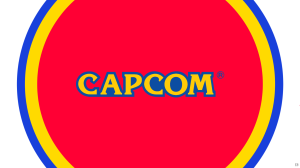Ecos: First Continent is an innovative tabletop game built around shaping a continent in your image. Designed by John D. Clair and published by AEG, Ecos: First Continent is an easy to learn game in which players jointly build a continent using modular tiles and then populate it with trees, mountains, and various species of animals. As the continent grows, players try to score victory points with the use of cards that are activated with different elements.
Videos by ComicBook.com
In Ecos: First Continent, players start with a hand of 12 square cards that allow them to grow and manipulate their newly formed continent in different ways. Some cards allow players to place tiles, trees, mountains, or animals, while others score points for players based on how the continent has developed. These cards are all activated by placing Energy cubes (taken from a player’s limited supply of Energy) on different element symbols located on the card. Once all the symbols are covered, a player declares “Ecos” and then completes the abilities on the card.
Unlike other tile placement games, there are no individual turns in Ecos: First Continent. Instead, play revolves around the element bag, which is filled with thick tokens that represent the different elements found on cards. Each round, one player draws a single token at a time and reveals it to all the players. Players then place a power cube on one of their corresponding element symbols on one of their card. If multiple players fill up a card at the same time, the first player who says “Ecos” gets to complete their card first.

If a player doesn’t have an element symbol that matches the element token drawn from the bag, they can rotate their Dial Token, which can be reset to either add Energy cubes to their supply, or to draw or play cards. There’s no wasted turns or actions in Ecos: First Continent – each draw from the Element bag gives players an equal chance to advance their own strategies.
Another interesting aspect of Ecos: First Continent is learning how the cards play off each other in different ways. Some cards give players additional elements, which create chains, while other cards set up big victory point scores depending on how well you’ve played earlier rounds in the game. Ecos: First Continent comes with pre-built hands and a card drafting option, so players can figure out how each unique card plays off of each other and when it’s ideal to play them. Each card can only be activated a limited number of times, so playing and activating a card too early can result in you “burning out” cards and leaving you with limited options later in the game, while playing a card too late can hinder your ability to chain card combos or get certain resources onto the continent. Each card is unique and builds the continent in different ways; however, very rarely do cards actively destroy or reverse another player’s actions – which makes the game feel a little less frantic or “backstabby.”
I enjoyed that Ecos: First Continent was very easy to learn and explain, and that the game comes with different options to account for experience levels. Players who can’t quickly see how cards work together can used pre-built hands to start, while more experienced players can opt to build their own hands in different ways. The game also moves pretty quickly, as your decisions are relatively simple and there’s an incentive for acting quickly when elements are drawn from the bag.
The components to Ecos: First Continent are for the most part pretty sturdy. The cards and tokens are all of high quality. Some of the cardboard containers used to hold the energy cubes and animal tokens are a little fragile (we had two pieces tear when we put them together) but they didn’t affect the actual game in any way. Plus, the in-game containers come with lids, which makes teardown and set-up a TON easier.
Ultimately, Ecos: First Continent can serve as either a gateway game or a go-to for more experienced players. Just anyone should be able to pick up on the basic strategies and mechanics of the game, but there’s enough nuance to satisfy more experienced players over multiple sessions. If you enjoy strategy games, engine-building, or have a love of nature, you should enjoy everything Ecos: First Continent has to offer.
Ecos: First Continent will be available at local game stores and online retailers later this month, with a suggested retail price of $59.99
Rating: 4 out of 5









